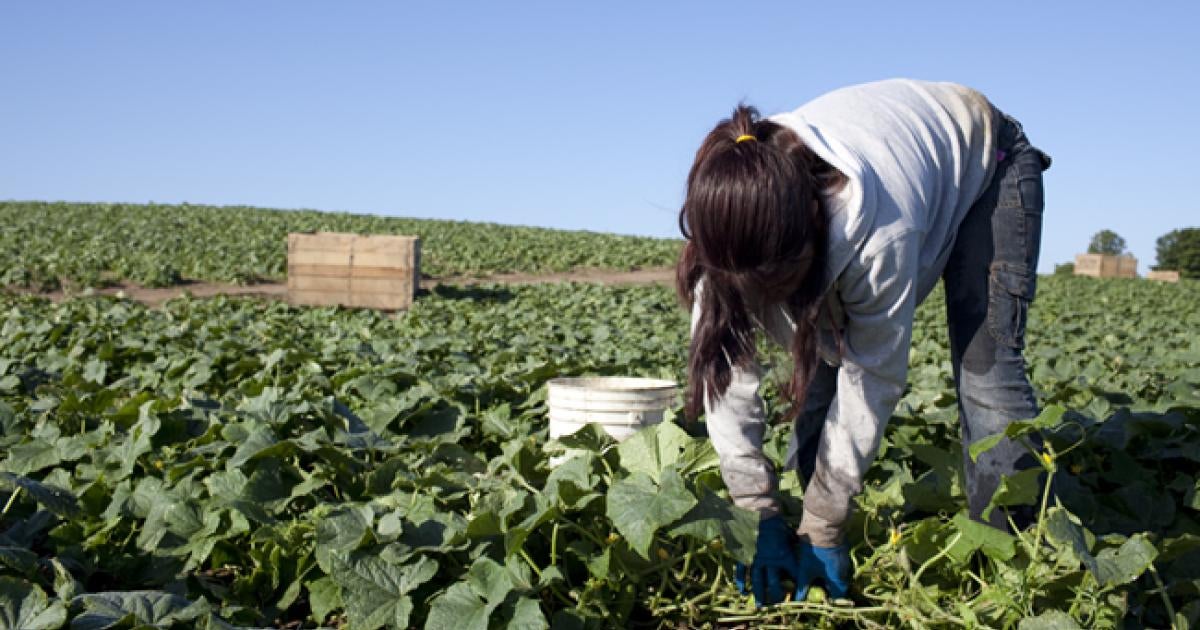As families across the United States prepare to gather for Thanksgiving this Thursday, too many children face danger cultivating and harvesting the foods that will end up on our tables.
A new Los Angeles Times investigation has found children working back-breaking 10-hour shifts on farms across the US state of California. Many said they began working when they were between 11 and 13 years old.
The children’s stories are eerily familiar. My colleagues and I have interviewed hundreds of children working on US farms who also worked 10 or more hours a day in extreme heat and reported injuries, illness, and chronic pain.
Many children we spoke with were exposed to toxic pesticides while they worked, with some becoming violently ill afterward. “I got so sick one time after they sprayed,” a 15-year-old girl told me. “I got really dizzy and I saw black. I sat down and threw up several times.” Pesticide exposure can be especially harmful to children because their bodies and brains are still developing.
US labor law leaves child farmworkers unprotected from these dangers. Under the Fair Labor Standards Act, children as young as 12 can work unlimited hours on farms of any size with parental permission, as long as they do not miss school. At 16, child farmworkers can do work considered hazardous, while in all other sectors, workers must be 18 to do hazardous work. Enforcement of even these weak protections is often lacking.
A bill before Congress would close these gaps and provide child farmworkers with the same protections as other working children. Last week, Congressman Raul Ruiz of California reintroduced the Children’s Act for Responsible Employment and Farm Safety (CARE Act), which would raise the minimum working age in agriculture from 12 to 14, and prohibit those under 18 from performing hazardous work.
Child labor in the US —and worldwide —is driven by economic need, and ensuring living wages, social security, labor rights protections, and free education are all key to protecting children from hazardous child labor. But strong legal frameworks and robust labor enforcement, coupled with other human rights protections, can help eliminate child labor.
For Thanksgiving, members of Congress should support the CARE Act and use their power to protect child farmworkers.

